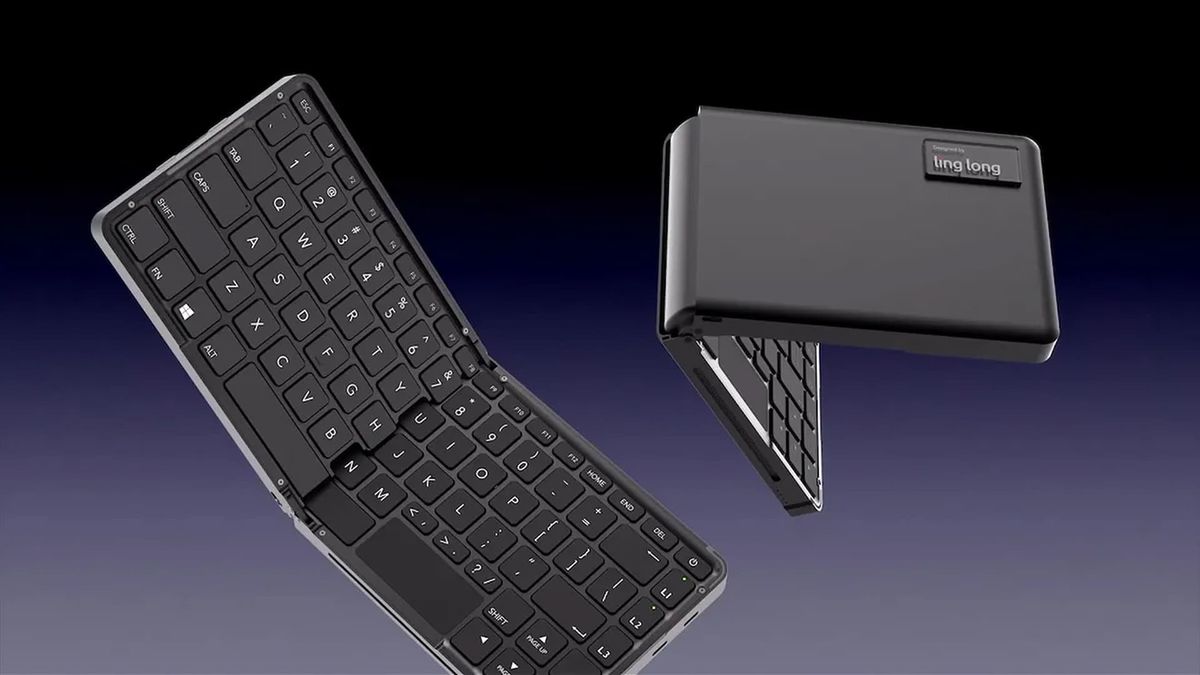In the past few years, the best mini PCs have become all the rage, thanks to consumers wanting more cost-effective machines that also take up very little space. It’s been fascinating to see the various designs that manufacturers have come up with to fill this growing market.
And now there’s a new contender for the most portable, unique, and size-efficient mini PC: a keyboard chassis that contains an entire PC. Called the Ling Long foldable keyboard, one side houses the battery while the other side features a motherboard, APU, memory, storage, and cooling system.
But the most shocking part is the processor it’s equipped with, the AMD Ryzen 7 8840U. It’s an eight-core Zen 4 processor with Radeon 780M graphics, which gives the keyboard PC quite the power boost while keeping the motherboard side below 42 degrees. And if you’re worried about port selection and connectivity, it has USB Type-C and Type-A ports and Wi-Fi 6 support.
The battery provided delivers 10 hours of productivity, six hours of entertainment, such as video streaming, and four hours of gaming. Several configurations are available, including up to 32GB of DDR5 RAM and up to 1TB of storage.
Considering that all this is made to fit under the hood of such a small, lightweight, foldable keyboard is truly impressive. It’s the perfect mini PC for office workers who need to bring a laptop to and from work. It’s also ultra cheap, only costing about $412 (£321 / AU$611) for the 16GB/512GB model and $495 (£385 / AU$734) for the 32GB/1TB model.
Mini PCs are here to stay
Instead of manufacturers focusing so many resources on a losing arms race of making the best graphics cards, the best processors, or the best laptops, the main focus should be on developing affordable PCs that the average worker can afford and easily transport around if need be.
The emerging market for mini PCs is already gaining plenty of traction, as seen by the increasing amount of them seeing releases like the GMKtec NucBox M6, the Minisforum AtomMan X7 Ti, and the Geekom AX8 Pro. There’s clearly a strong demand for this type of PC, which is still growing. Why would one keep spending exorbitant amounts of money on making the most powerful laptops and desktops that are seeing diminishing returns when you can devote that effort and developmental cost to substantially cheaper machines that still output incredible performance?
Hopefully, we’ll continue to see this mini PC grow as more manufacturers realize that it is a smarter investment. It would also solve the energy crisis that results from the overpowered components and the AI that’s being powered with that tech.





